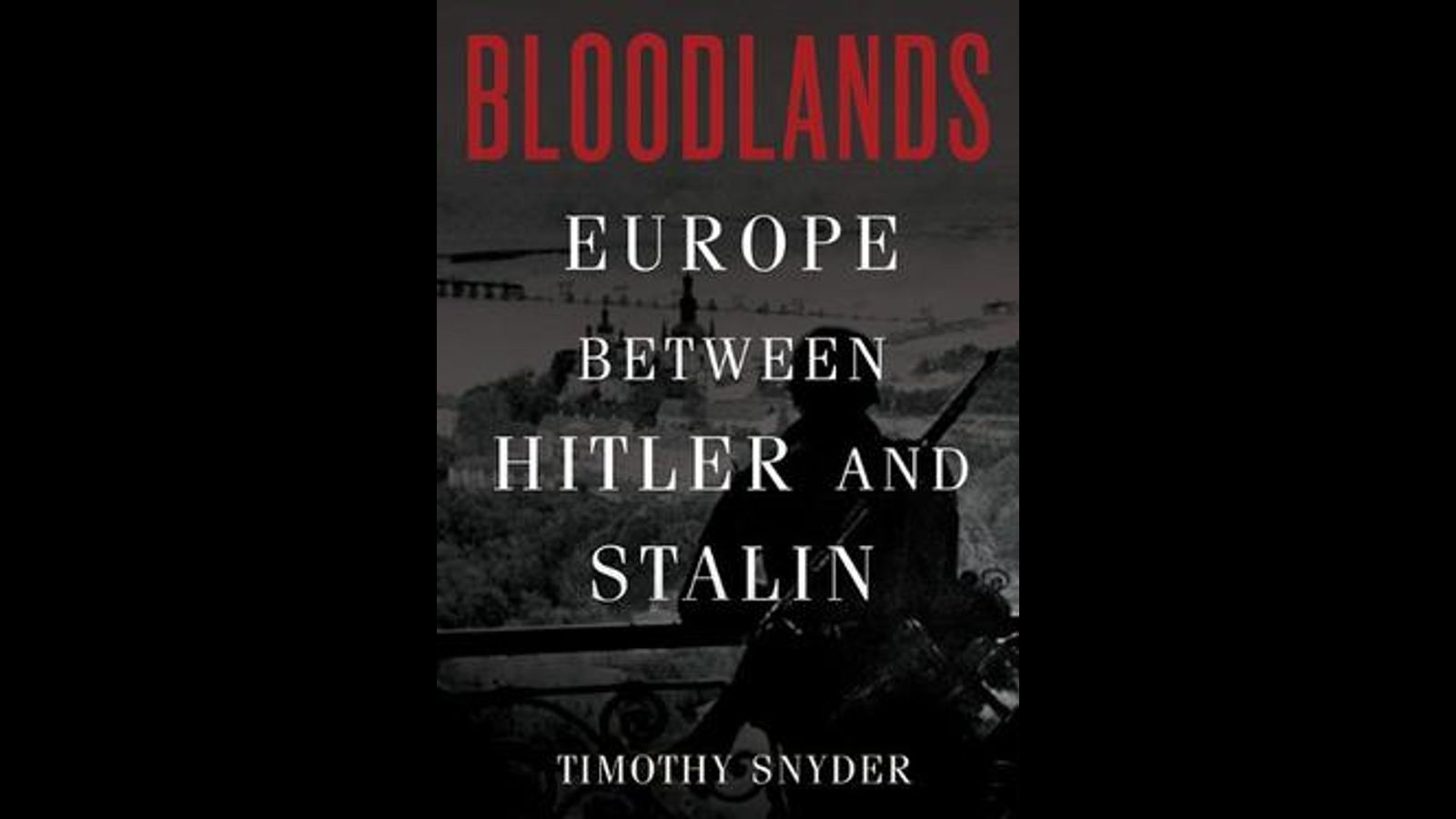AHHHHHHHHHHHHHHHHHHHHHH  AHHHHHHHHHHHHHHHHHHHHHH
AHHHHHHHHHHHHHHHHHHHHHH  AHHHHHHHHHHHHHHHHHHHHHH
AHHHHHHHHHHHHHHHHHHHHHH  AHHHHHHHHHHHHHHHHHHHHHH
AHHHHHHHHHHHHHHHHHHHHHH  AHHHHHHHHHHHHHHHHHHHHHH
AHHHHHHHHHHHHHHHHHHHHHH  AHHHHHHHHHHHHHHHHHHHHHH
AHHHHHHHHHHHHHHHHHHHHHH  AHHHHHHHHHHHHHHHHHHHHHH
AHHHHHHHHHHHHHHHHHHHHHH  AHHHHHHHHHHHHHHHHHHHHHH
AHHHHHHHHHHHHHHHHHHHHHH  AHHHHHHHHHHHHHHHHHHHHHH
AHHHHHHHHHHHHHHHHHHHHHH  AHHHHHHHHHHHHHHHHHHHHHH
AHHHHHHHHHHHHHHHHHHHHHH  AHHHHHHHHHHHHHHHHHHHHHH
AHHHHHHHHHHHHHHHHHHHHHH  AHHHHHHHHHHHHHHHHHHHHHH
AHHHHHHHHHHHHHHHHHHHHHH  AHHHHHHHHHHHHHHHHHHHHHH
AHHHHHHHHHHHHHHHHHHHHHH  AHHHHHHHHHHHHHHHHHHHHHH
AHHHHHHHHHHHHHHHHHHHHHH  AHHHHHHHHHHHHHHHHHHHHHH
AHHHHHHHHHHHHHHHHHHHHHH  AHHHHHHHHHHHHHHHHHHHHHH
AHHHHHHHHHHHHHHHHHHHHHH  AHHHHHHHHHHHHHHHHHHHHHH
AHHHHHHHHHHHHHHHHHHHHHH  AHHHHHHHHHHHHHHHHHHHHHH
AHHHHHHHHHHHHHHHHHHHHHH  AHHHHHHHHHHHHHHHHHHHHHH
AHHHHHHHHHHHHHHHHHHHHHH  AHHHHHHHHHHHHHHHHHHHHHH
AHHHHHHHHHHHHHHHHHHHHHH  AHHHHHHHHHHHHHHHHHHHHHH
AHHHHHHHHHHHHHHHHHHHHHH  AHHHHHHHHHHHHHHHHHHHHHH
AHHHHHHHHHHHHHHHHHHHHHH  AHHHHHHHHHHHHHHHHHHHHHH
AHHHHHHHHHHHHHHHHHHHHHH  AHHHHHHHHHHHHHHHHHHHHHH
AHHHHHHHHHHHHHHHHHHHHHH  AHHHHHHHHHHHHHHHHHHHHHH
AHHHHHHHHHHHHHHHHHHHHHH  AHHHHHHHHHHHHHHHHHHHHHH
AHHHHHHHHHHHHHHHHHHHHHH  AHHHHHHHHHHHHHHHHHHHHHH
AHHHHHHHHHHHHHHHHHHHHHH  AHHHHHHHHHHHHHHHHHHHHHH
AHHHHHHHHHHHHHHHHHHHHHH  AHHHHHHHHHHHHHHHHHHHHHH
AHHHHHHHHHHHHHHHHHHHHHH  AHHHHHHHHHHHHHHHHHHHHHH
AHHHHHHHHHHHHHHHHHHHHHH  AHHHHHHHHHHHHHHHHHHHHHH
AHHHHHHHHHHHHHHHHHHHHHH  AHHHHHHHHHHHHHHHHHHHHHH
AHHHHHHHHHHHHHHHHHHHHHH  AHHHHHHHHHHHHHHHHHHHHHH
AHHHHHHHHHHHHHHHHHHHHHH  AHHHHHHHHHHHHHHHHHHHHHH
AHHHHHHHHHHHHHHHHHHHHHH  AHHHHHHHHHHHHHHHHHHHHHH
AHHHHHHHHHHHHHHHHHHHHHH  AHHHHHHHHHHHHHHHHHHHHHH
AHHHHHHHHHHHHHHHHHHHHHH  AHHHHHHHHHHHHHHHHHHHHHH
AHHHHHHHHHHHHHHHHHHHHHH  AHHHHHHHHHHHHHHHHHHHHHH
AHHHHHHHHHHHHHHHHHHHHHH  AHHHHHHHHHHHHHHHHHHHHHH
AHHHHHHHHHHHHHHHHHHHHHH  AHHHHHHHHHHHHHHHHHHHHHH
AHHHHHHHHHHHHHHHHHHHHHH  AHHHHHHHHHHHHHHHHHHHHHH
AHHHHHHHHHHHHHHHHHHHHHH  AHHHHHHHHHHHHHHHHHHHHHH
AHHHHHHHHHHHHHHHHHHHHHH  AHHHHHHHHHHHHHHHHHHHHHH
AHHHHHHHHHHHHHHHHHHHHHH  AHHHHHHHHHHHHHHHHHHHHHH
AHHHHHHHHHHHHHHHHHHHHHH 
For context Libs on Bsky are passing aroudn this fascists shithead’s bullshit book “On Tyranny” as a manual for “resisting authoritarianism” THE CALL IS COMING FROM INSIDE THE HOUSE YOU LIBERAL SHITWIPES!
Removed by mod
You know, you raised something in my mind; The Germans committed the Herero genocide in, what, 1898? Okay, 1904 to 1908. The idea that the Germans needed to look outside for inspiration is preposterous on it’s face, they’d already committed genocide in their own colonies.
The conflict between agriculturalists and pastoralists/nomads is such an incredibly deep conflict in human history. Any suggested reading for how Khazaks experienced the USSR?
You know, you raised something in my mind; The Germans committed the Herero genocide in, what, 1898? Okay, 1904 to 1908. The idea that the Germans needed to look outside for inspiration is preposterous on it’s face, they’d already committed genocide in their own colonies.
The one reason they’d need outside inspiration is that doing a genocide in a colony is a bit different than bringing the empire home. The colonial apparatus is already primed to do violence against the colonized population. The reason they needed inspiration is because a double sided colonization where you colonize the periphery (Westward expansion) and you recolonize the imperial core (Trail of Tears, slavery, population transfers, Jim Crow) at the same time was really an American invention.
The conflict between agriculturalists and pastoralists/nomads is such an incredibly deep conflict in human history. Any suggested reading for how Khazaks experienced the USSR?
Good overview for the Sovietization of Central Asia is
Inside Central Asia by Dilip Hiro
Nomads and Soviet Rule by Alun Thomas is on my reading list but I haven’t gotten to it. So I cannot vouch for its quality.
There’s not a lot of “friendliness” in portions of this history so you’re not gonna get a lot of good feelings but I’ve heard good things about:
- The Hungry Steppe – 1930 famine, it’s an anti-Stalin polemic so you have to critically read where Cameron is pushing something that she can’t actually back up
- Atomic Steppe – How the bomb was developed in Kazakhstan
- Steppe Dreams – Post-Soviet studies
In practice a lot of this is really the history of colonial conquest…
Japan’s Siberian intervention, 1918-1922. tells the story of Japans attempt at the same region during the same time.
Thank you. : )
There is also Ostsiedlung and the so-called “Germanisation” of western slavic peoples like Wends, Polabians, etc. going back to like the 9th century; this historical record was used by the Nazis for the justification of Lebensraum.
It’s seriosly annoying, when people will only acknowledge a genocide to say ‘communism bad’, its like the fascist ‘anti sex trafficking’ panic-they dont actually care about the victims or want to stop it from happening again, and it’s almost worse than a denial
My favorite stuff to read in genocide studies is when Western academics shiv each other on political grounds.
Norman Naimark is an interesting case. He’s a super right wing guy, Hoover Institution, literally Galician parents and all that. Wrote a book called Stalin’s Genocides
He’s unique because he posits that the definition of genocide should be broadened and one of this hobby horses (that I interestingly enough entertain and mildly agree with) is that kulaks became a targeted class. Which brings up some interesting points like, if I manufacture a class of people that are labeled as enemies, and I just slide those goalposts to be able to push more people into that class does that constitute a genocide? It’s a very postmodern proposal to redefine genocide.
Ironically another right wing guy called Michael Ellman does not like Naimarks theory because:
“The liberal interpretation of genocide that Naimark favors is… in line with recent jurisprudence. However, he fails to point out the boomerang effect of such an interpretation. According to a recent book by a U.S. specialist on genocide… the massacres of some of the native Americans by European settlers, the Atlantic Slave Trade, the use of a nuclear bomb against Nagasaki…should all be considered genocides. This would make the United States founded on two genocides and guilty… of more… In view of this boomerang effect, my advice to Western governments is to stick to a strict constructionist interpretation of genocide. Hence, I disagree with Naimark’s wish to classify Stalin’s mass murders as genocide.”
It would stain the credibility of the United States…
Ironically, Snyder and Applebaum (like Naimark) point to the USSR’s advocacy for current and specific definition of genocide as the reason that USSR actions don’t fall into the legalistic criteria of genocide, they also do not see this potential for blowback. Ellman doesn’t even acknowledge things in recent history that would fit the extended definition (which would effectively add all ethnic cleansing into the criterion) such as “Mexican Repatriation”.
It’s almost like this term is a political football in-as much as it is a descriptor of historic atrocity.
kulaks became a targeted class
Turns out communists target classes. Weren’t they extremely explicit about this? And the pearl-clutching libs then say that “every domestic enemy of the state was called a kulak”
Or do you mean, like, they were all explicitly targeted with death as the only allowable outcome rather than the dissolution of there class? (a number of them were killed either way, of course)
Removed by mod
GOOD POST

I love being in a leftist space where people can actually critically analyze the actual successes and failures of communist states in good faith. You’ve given me much to think about.
It’s really refreshing to see a criticism of Stalin (and the Bolsheviks more broadly) that goes beyond the token “criticisms” tankie spaces usually make (e.g. Stalin shouldn’t have stopped at Berlin, the mass relocations were bad but totally not unforced atrocities, etc.) while also not falling into the shitlib “Stalin was literally Hitler who fusion danced with Hitler to form a double Hitler and do hella genocide” kind of shit.
My favorite evergreen criticism of almost every stage of human development.

good post. where can I read more of this type of stuff?
So there’s not a lot of “popular history” of this kind of stuff in the West.
I’ve gotten a lot of this knowledge mostly by studying history and reading the works of Marx/Lenin/Trotsky/Mao. You can get a lot of really good basic info if you study the Sino-Soviet Split (The Sino-Soviet Split: Cold War in the Communist World)
For specific recommendations that are accessible:
Vanguard of the Revolution: The Global Idea of the Communist Party - Good primer about global communist development
The New Class by Milovan Djilas - this is the OG book of “I’ve been trying to build this shit and I’m mad at what we’ve built” Conversations with Stalin by Milovan Dijas is also a good read because it really explains the reality of the consequences of USSR foreign policy in places where it needed to succeed the most in real communism building ways and not in “fight America” ways.
Also if you read The New Class absolutely must read The New Industrial State and the Affluent Society by Gailbraith because the entirety of the structure of Djilas and Gailbraith lines up, you start to see the patterns that are literally about industrial production as a social process in and of itself has hard problems that were solved in almost the exact same ways on both sides of the Iron Curtain, leading to similar outcomes of social stratification, one capitalist and one communist.
Other than that back copies of Comparative Communist Studies and Communist and Post Communist Studies from JSTOR or however you can get academic publications have been really interesting to me.
Under Leninism peasants are not proletarians. Let me underline that. Under Leninism anyone who worked on a farm was not a worker in the communist sense.
This is just a silly thing for you to say. “Proletarian” does not mean the same thing as “worker,” it refers to someone who is reliant on selling their labor for wages. Peasants and proletarians are both workers, and it’s a basic feature of the development of (e.g. European) capitalism that there were successive stages of owning and working classes.
I really don’t think the butter-churn benchmark was representative of Leninist theory about divisions in the peasantry* (which is not me saying that they didn’t make catastrophic errors). It feels to me like saying “People engaged in ritual cannibalism during the Cultural Revolution” as a way of characterizing the CR. Yes, such a thing did happen as far as I can tell, but it’s not like it was a national issue or part of Mao’s doctrine, it was a bizarre thing that took hold among certain factions in a certain region during a period of upheaval.
Obviously, Mao handled the peasant question much better, it’s probably what he is given the most credit for, but he does something similar in his ““cosmology”” in terms of dividing the peasantry into three major types, (poor, middle, rich) and aligning himself fundamentally with the poor while accepting collaboration with the middle, making distinctions about “well-to-do middle peasants” and so on. Here’s an example from Stalin. This is not to say Lenin and Stalin did not make grave errors, I repeat that they did, but when you were sneering about a ““cosmology,”” you were failing to explain these differences against Mao.
Lastly, I admit that Trotsky was more honest before his exile, but I really question using him as a source for criticizing Stalin when he would historically go on to do any anticommunist thing he had to in order to attack Stalin. I don’t think you need to go and get, idk, some troubled journal entry from Molotov, your point is made, I just think speaking of Trotsky as though he’s credible is, uh, fraught.
*Edit: I reread your post and it seems to be suggesting that the butter-churn thing actually came from Moscow. Is that so?
I’m going to address one or two points because it’s unique and the rest is just copy and pasting from classic apologia, and if we start looking at the feasibility of best case Soviet side through numbers, you’ll just start saying Big Black Book of Gommunism.
This is just a silly thing for you to say. “Proletarian” does not mean the same thing as “worker,” it refers to someone who is reliant on selling their labor for wages. Peasants and proletarians are both workers, and it’s a basic feature of the development of (e.g. European) capitalism that there were successive stages of owning and working classes.
There is no practical difference between a proletarian who sells his labor for a wage, and a tenant farmer who takes on debt for land. You’re merely comodifying the means of production in sharecropping. In fact there’s a composite of this relationship at some of the most exploitative shops where workers also have to rent tools from their bosses. In 2024 it’s on its face ridiculous to attempt to segregate farm labor from industrial labor rather than advocate for labor solidarity, that’s exactly how I know you’re writing apologia.
Obviously, Mao handled the peasant question much better, it’s probably what he is given the most credit for, but he does something similar in his ““cosmology”” in terms of dividing the peasantry into three major types, (poor, middle, rich) and aligning himself fundamentally with the poor while accepting collaboration with the middle, making distinctions about “well-to-do middle peasants” and so on
Mao is writing from 1955 when the rewards of the revolution have been realized by the peasantry, the literal beginning of what you’ve linked states, that rich peasants emerged from the middle and middle from the poor as a result of the revolution. This is adressing accumulation of wealth under a system that has already brought benefits to its people. Under Lenin and Stalin peasantry literally didn’t realize the benefits of the revolution until after WW2.
Not only that but Mao consistently self criticized his own leadership about bringing more development to the rural areas, a tradition that is still passed down in the CCP today despite Dengism.
Also Mao himself writes a critique of the explicit problems of Bolshevik revolution in On the Ten Major Relationships (1956 literally one year later) which mirror mine (I wonder where I stole them), and serve as a second source to back up the reasons for material conditions made in claims from the 1955 piece.
The Soviet Union has adopted measures which squeeze the peasants very hard. It takes away too much from the peasants at too low a price through its system of so-called obligatory sales [2] and other measures. This method of capital accumulation has seriously dampened the peasants’ enthusiasm for production. You want the hen to lay more eggs and yet you don’t feed it, you want the horse to run fast and yet you don’t let it graze. What kind of logic is that!
Our policies towards the peasants differ from those of the Soviet Union and take into account the interests of both the state and the peasants. Our agricultural tax has always been relatively low. In the exchange of industrial and agricultural products we follow a policy of narrowing the price scissors, a policy of exchanging equal or roughly equal values. The state buys agricultural products at standard prices while the peasants suffer no loss, and, what is more, our purchase prices are gradually being raised. In supplying the peasants with manufactured goods we follow a policy of larger sales at a small profit and of stabilizing or appropriately reducing their prices; in supplying grain to the peasants in grain-deficient areas we generally subsidize such sales to a certain extent. Even so, mistakes of one kind or another will occur if we are not careful. In view of the grave mistakes made by the Soviet Union on this question, we must take greater care and handle the relationship between the state and the peasants well.
Similarly, the relationship between the co-operative and the peasants should be well handled. What proportion of the earnings of a co-operative should go to the state, to the co-operative and to the peasants respectively and in what form should be determined properly. The amount that goes to the co-operative is used directly to serve the peasants. Production expenses need no explanation, management expenses are also necessary, the accumulation fund is for expanded reproduction and the public welfare fund is for the peasants’ well-being. However, together with the peasants, we should work out equitable ratios among these items. We must strictly economize on production and management expenses. The accumulation fund and the public welfare fund must also be kept within limits, and one shouldn’t expect all good things to be done in a single year.
Except in case of extraordinary natural disasters, we must see to it that, given increased agricultural production, go per cent of the co-operative members get some increase in their income and the other lo per cent break even each year, and if the latter’s income should fall, ways must be found to solve the problem in good time.
In short, consideration must be given to both sides, not to just one, whether they are the state and the factory, the state and the worker, the factory and the worker, the state and the co-operative, the state and the peasant, or the co-operative and the peasant. To give consideration to only one side, whichever it may be, is harmful to socialism and to the dictatorship of the proletariat. This is a big question which concerns 600 million people, and it calls for repeated education in the whole Party and the whole nation.
And by the way what was promised to the peasantry by Lenin in Proletariat and Peasantry was never delivered, not by Lenin and certainly not by Stalin.
Toodles.
You were so much nicer to me before, but in my process of trying to look up that butterchurn thing, all I found was an argument that you had with Barx 12 days ago, where you had a tone much more like you have here. I’m not sure what I did to deserve it. Also I still want a source on the butterchurn thing.
In 2024 it’s on its face ridiculous to attempt to segregate farm labor from industrial labor
I would consider farm labor in a modern state like the US to be proletarian. This should be obvious. It’s a backward country in many ways, but the relations of production are not medieval.
rather than advocate for labor solidarity,
Even if they [modern American rural workers] were peasants, or we were talking about an industrializing nation in the modern day that actually does have something like a medieval peasantry alongside a proletariat, I would advocate for solidarity among the working classes against the owning classes. Nothing I said contradicted that. You underestimate how specific a criticism I was making, just because I support one of Lenin’s premises in a defective argument does not mean I support every premise, every inference, and every conclusion. You’re shadowboxing.
that’s exactly how I know you’re writing apologia.
It turns out you don’t.
cool they literally ate the rich
Regarding the motive for cannibalism, Ding Xueliang (丁学良), a professor at the University of British Columbia and the Hong Kong University of Science and Technology, pointed out that “this was not cannibalism because of economic difficulties, like during famine. It was not caused by economic reasons, it was caused by political events, political hatred, political ideologies, political rituals.”[7][22] Qin Hui also showed with statistics that the cannibalism was not due to the traditions of local ethnic minorities; he argued that the cannibalism was mainly due to: 1) the extreme class struggle during the Cultural Revolution, which led to a modern “caste” system (such as the Five Black Categories) and an extreme massacre towards the lower class from the upper class; 2) the revenge from the local officials and military towards the rebel group who challenged their interests.[23]
Yeah, its not like anyone who matters has ever actually given a shit about genocide, by any definition heretofore proposed.
Yeah fun fact that I just wanted to look it up. Naimark has basically gone on an Israeli podcast and has toed the academic line, about how you can’t just destroy Palestinians because you want to. He didn’t call it a genocide, he explicitly denied it was a genocide but said it was ethnic cleansing. And he also used the term “the so-called Nakba”.
The host by the end of it looks so sad because he really thought he was gonna get this Jewish Genocide Studies scholar to definitively say, YOU CAN TREAT THE PALESTINIANS LIKE DOGS.
My understanding is “ethnic cleansing” is a euphemism for genocide with no distinct meaning. It’s used to launder certain genocides as “less bad”. Is that a fair assessment?
In terms of a distinct meaning, ethnic cleansing is a descriptor of generally dispossessing a people, where genocide is a descriptor of destroying a people. You can ethnically cleanse people without destroying them.
Genocide itself used in the IR sense is a legal charge according to the genocide convention. Not all ethnic cleansing counts as genocide in the genocide convention.
Ugh. So many former humans choosing to join a ‘protocols of the elders of Zion’/‘the turner diaries’ crossover LARP, and everyone just keeps kayfabe. Like they can be neutral on this shit.
everyone just keeps kayfabe. Like they can be neutral on this shit.
TBF this was the “center-right” and polite position in academia all along.
The consensus has been there for a long time.
Yeah. How are we doing on that ‘western civilization’ thing? Any progress?
I found a YouTube link in your comment. Here are links to the same video on alternative frontends that protect your privacy:
I don’t think anything will go as hard as Furr’s ‘Blood Lies: The Evidence that Every Accusation against Joseph Stalin and the Soviet Union in Timothy Snyder’s “Bloodlands” Is False’. Say whatever you want about Furr, but his titles crack me up
Real “The Incoherence of the Incoherence” hours.
Have you seen Furr’s press tour for his newest book? It’s called “Doo doo head liar: Why every single thing that this absolute LOSER said is wrong”
This is one of the best takedowns of On Tyranny which is in reality one of those “should have been a blog post” drivel books that I’ve read:
I like wsws even though they’re trots
They have published some real bullshit before, but yeah, when I check in from time to time wsws.org is usually pretty good. Like surprisingly good for Trots.
must’ve missed their apologetics for any celebrity accused of SA since woody allen
i guess i did miss that
My lib mom (who is somewhat well read) loves this fucking hack and this book in particular
Edit: a while back, someone posted a PDF takedown of this same book. I remember the first vignette they picked apart we the apocryphal story of the “starving young man digging his own grave”. Anyone know what I’m talking about?
Idk, Blood Lies?
Look, nobody’s ever written anything about resisting tyranny, doing a revolution, or existing in a world that’s kind of your hell. Certainly nothing about fighting fascists.
It’s not a new problem, but it’s an absolute research orphan.
The headline
Timothy Snyder’s Bloodlands: Right-wing propaganda disguised as historical scholarship — Part One The false presentation of the Soviet famine as a “deliberate” policy of mass murder
Your comment
Look, nobody’s ever written anything about resisting tyranny, doing a revolution, or existing in a world that’s kind of your hell. Certainly nothing about fighting fascists.
It’s not a new problem, but it’s an absolute research orphan.
Did you respond to the wrong post? Idk how that relates to it…
No. OP made the wrong post.
OP’s original post is obviously about Bloodlands and how Bsky libs are praising it… I don’t understand what yer talkin’ of?
I’m saying its impossible that I’m wrong or misclicked and replied to the wrong thing; it is the context that is incorrect.
Yeah, maybe he put the wrong link








